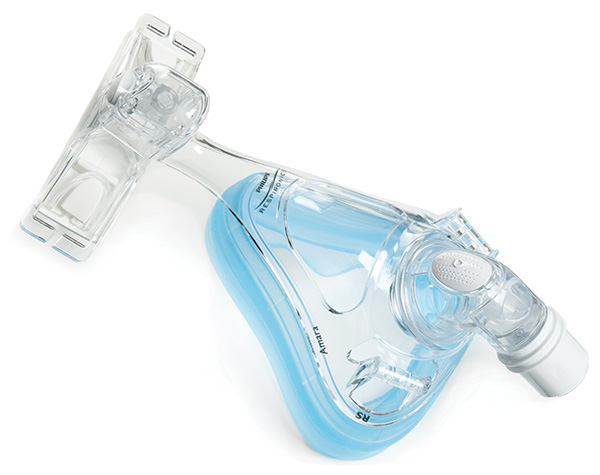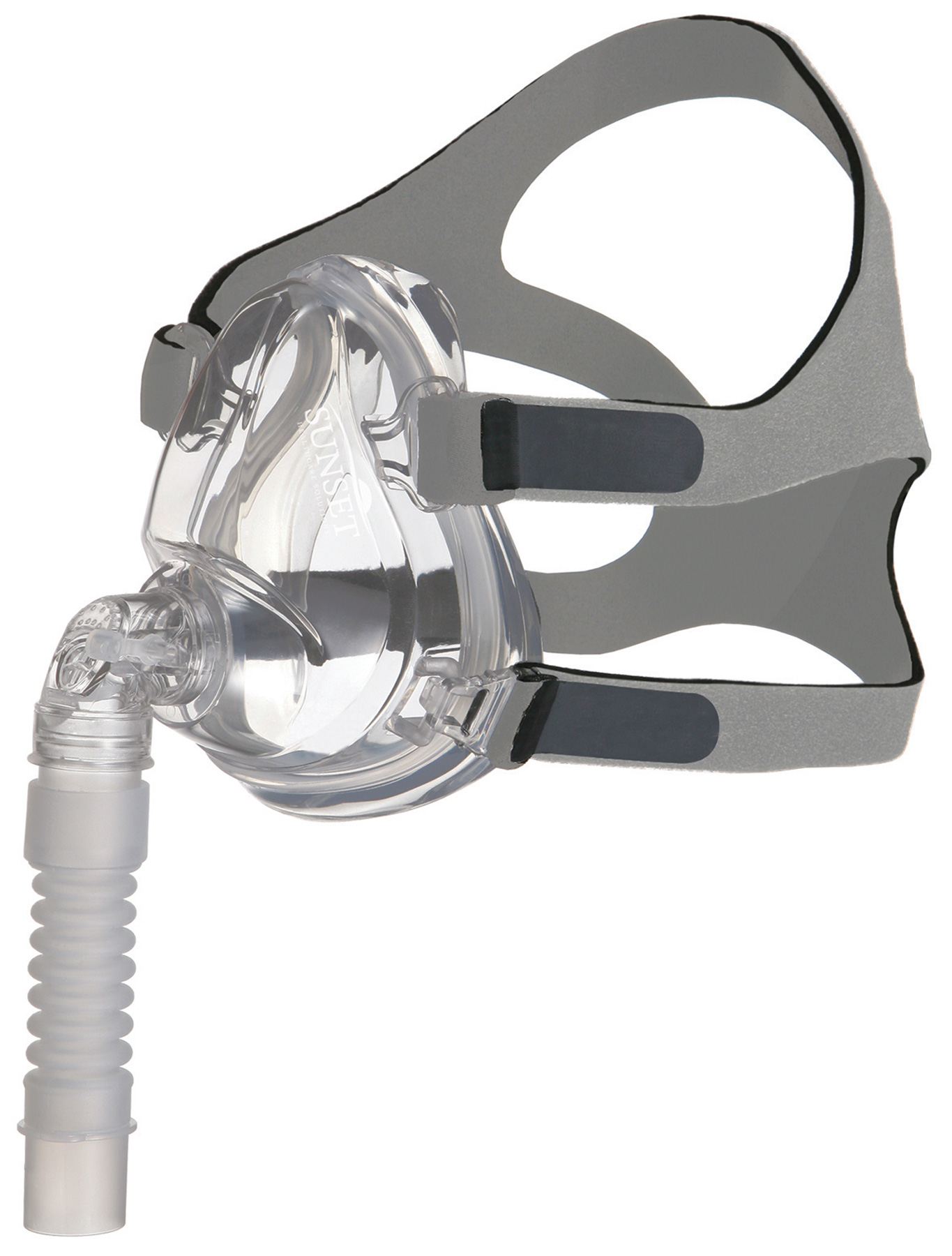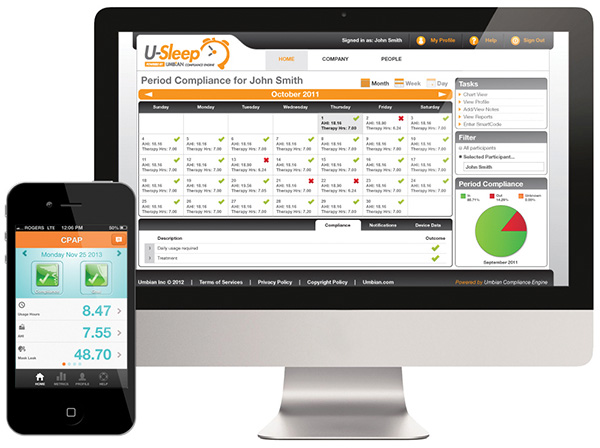More and more transportation companies are requiring employees to be screened for sleep apnea. Liability issues continue to surface related to sleep-deprived truckers, engineers and pilots, who could make judgment errors that could cause an accident. To avoid possible lawsuits, companies are being proactive in their efforts to identify and treat sleep problems. This awareness of the importance of sleep has also made its way into the sports arena. Recently, several high-profile athletes have been diagnosed with sleep apnea. The new coach for the Philadelphia Eagles, Chip Kelly, had all of his players undergo sleep studies because obstructive sleep apnea (OSA) can affect their performance on the field. “If you’re a self-insured employer, putting employees in a sleep management program as part of a corporate wellness program provides health benefits, greater productivity and fewer accidents,” says Jim Hollingshead, president, Americas, ResMed. New corporate programs are another element to help identify the tens of millions of undiagnosed OSA patients. Greater awareness of sleep therapies is opening up new business for HMEs active in the sector. For providers who didn’t get Medicare competitive bid contracts, marketing to commercial payers, corporations and other emerging markets can help offset disruption in the Medicare business. Every study in the last half dozen years has pointed to an increase in OSA, says Hollingshead. “There are millions of patients diagnosed now, and way more undiagnosed patients than diagnosed.” The unfortunate medical trend, driven in part by an older and fatter population, foreshadows a huge potential growth opportunity for the sleep therapy market. “If our customers can stay the course and get through the disruption (of competitive bidding), they will have a great growth opportunity,” Hollingshead says. Greater awareness indicates an increase in patients over time, even as competitive bidding and other market forces are working to decrease the number of providers in the sleep market. To meet the higher demand, providers will have to scale their businesses and operate more efficiently. Because of competitive bidding, more patients will be dealing with a provider several states away rather than a local mom-and-pop, which means greater challenges to provide service. “There are patients who call us because they don’t know who their provider is for Medicare replacement products,” says Mike Chorney, territory manager for Sunset Healthcare Solutions. “Efficiency will play a large role and help providers find the balance between cutting costs and providing an acceptable level of service,” he adds. “Older, higher levels of service may become impractical.”
Revenue from Compliance
Even with competitive bidding, HMEs should avoid the temptation to go with lower-cost products to help them adapt to lower reimbursement rates, says Hollingshead. “It’s a false economy. Lower initial compliance and higher product returns will quickly wash away the difference in product pricing.” He recommends that HME providers supply patients with high-quality therapy. “The real revenue comes from compliance. I am shocked by some of the lower-quality products,” he says. Many providers also are missing an opportunity if they don’t have a structured resupply program, which can benefit the patient as well as provide extra revenue for the HME provider. ResMed has a full product line, including CPAP, auto-titration and bi-level devices that share the S9 platform, featuring a quiet motor, user-friendly design, humidification with climate control and a comfortable, Easy-Breathe waveform. The common platform enables providers to keep fewer inventory items. ResMed also has a full line of masks, including full-face, nasal and pillow masks. The Swift FX Nano is a hybrid CPAP mask featuring a small form factor that is unobtrusive, has no ridge and has a cushion across the bottom. The Quattro Air is a light full-face mask. Simplifying inventory on the mask side, ResMed’s Mirage FX mask fits 90 percent of patients. An innovator in terms of quiet and comfort, ResMed’s product choices also allow providers to have fewer stock keeping units (SKUs) and easier patient setup.
 Philips Respironics Amara Gel Mask
Philips Respironics Amara Gel Mask
ResMed also offers several software platforms in the sleep market including EasyCare for online compliance monitoring; and U-Sleep, a cloud-based, multi-manufacturer platform that can accommodate compliance rules for a variety of payers. The SleepSeeker is a patient engagement program that allows patients to remove an SD card from a flow generator, transfer their data to a patient information portal and self-manage their therapy. The system doesn’t replace the HME, who will want to stay engaged in managing compliance, which affects payment, Hollingshead says. “What you’ll see from us is more and more software-based solutions aimed at helping customers run more efficient businesses, automate their processes and engage patients in their own care,” Hollingshead says. “It’s a massively under-diagnosed public health problem that affects quality of life. Our mission is to find those patients and treat them. Our partners need to be able to run as efficiently as they can. We try to do both of those things every day.”
Stay on Top in 2014
Mike Chorney of Sunset Healthcare Solutions says 2014 will be an interesting year for the sleep market, as providers figure out how to deal with competitive bidding—whether by streamlining, outsourcing or dropping Medicare patients. As the market evolves, technology is driving compliance, whether new iPhone apps or electronic compliance reports sent to a caregiver. Sleep therapy machines are also becoming smaller and easier to handle. Chorney says HMEs should know their strengths and weaknesses and adapt rapidly to changes in the market, whether in the form of new products, new technologies, reimbursement rates, Medicare or insurance regulations. “There are so many things you have to stay on top of,” he says. Sunset Healthcare Solutions is a manufacturer and distributor of sleep therapy replacement products (soft goods) from masks to filters to chin straps. A popular product is the Sunset Deluxe Full Face Mask, which is cost-effective for Medicare patients. The lightweight silicone mask has easy-to-replace cushions. It’s also a good substitute mask; if needed, it can be sold for cash and be used until a periodically reimbursed replacement is allowed.
 Sunset Healthcare Deluxe Full Face Mask
Sunset Healthcare Deluxe Full Face Mask
Cash items are another opportunity in the sleep market, Chorney says. One example is aromatherapy scents, which provide calming smells to make the overall CPAP experience more enjoyable. Sunset Health Solutions offers a kit with 16 refreshing scents. All it takes is one drop of aromatherapy on the white diffusion pad. Natural oils create comforting sensations to help soothe and relax. Scents range from chocolate cake to a menthol scent (similar to Vicks VapoRub) that can help keep sinuses clear.
Focus on Non-Medicare
The availability of less expensive home sleep studies is increasing awareness and utilization of sleep therapies, says Ron Richard, CEO of InnoMed Technologies. The sleep market is also benefiting from greater awareness of related health problems like hypertension, diabetes, cardiac events and strokes. The Affordable Care Act (ACA) is contributing to a more proactive preventative care mindset that can benefit the market for sleep therapies. The broader impact of the ACA’s higher co-pays will become more apparent in 2015 as implementation of the act plays out, Richard says. Richard reminds HME providers that Medicare covers only about 20 percent of the total sleep patients. Many people in their thirties to fifties who are covered by private plans make up a large part of the patient pool and are not covered by competitive bidding. The rate of obesity, which is one of the risk factors for OSA, is higher among younger patients than those older than 65. InnoMed manufactures a range of masks used in sleep and respiratory applications. The company started with the Nasal-Aire product in the early 2000s and has since added other products, including the Aloha Nasal Pillow System, featuring a lightweight and comfortable mask for restless sleepers. One trend in the market is toward masks that are less intrusive and easier to wear, Richard says. Women don’t want headgear that interferes with their hair. Providers can take a role in promoting greater awareness of sleep therapies through advertisements, health fairs, etc. Physicians including more questions about snoring and problems falling asleep on intake forms is also beneficial. Screening for sleep apnea can also reduce post-operative complications in the hospital setting. Many people who never knew they had sleep apnea have discovered it through use of screening questionnaires, Richard says. Richard says providers should follow up with patients to be sure they are getting their CPAP accessories and suppliers and that they are compliant and comfortable with their mask. “They should communicate with patients more frequently than they have in the past,” he recommends.
Remote Patient Management in Demand
In the U.S., Philips Respironics also sees opportunity in the diagnosis and treatment of those who do not know they are suffering from sleep-disordered breathing. The challenge remains, however, to educate clinicians and patients about the importance of treating these conditions. Awareness initiatives and clinical studies—supported by health and sleep organizations and interested manufacturers—are helping to broaden education. However, more clinical evidence and large-scale trials are still necessary to drive the need to treat school of thought among physicians for patients with OSA and co-morbid conditions, says Mark D’Angelo, senior director and general manager, sleep, for Philips Respironics. As a global leader in the OSA marketplace, Philips Respironics focuses on sleep-disordered breathing diagnosis, therapy and compliance. The total solution provider offers a range of sleep diagnostics, sleep therapy devices (PAPs), a comprehensive portfolio of masks, and services and support tools to meet the needs of providers and the patients they serve. From in-lab and portable testing systems that can be used in the home, to a full line of quality sensors, Philips’ diagnostic options handle basic to advanced studies. Products span from entry-level CPAPs to more advanced sleep therapy solutions. The mask portfolio includes full-face, nasal, pillow, gel and hybrid solutions that can streamline inventory for providers and promote quick acceptance and long-term use by patients. Complementing the product offerings are services such as compliance management, patient self-management and resupply tools to enable home care providers to thrive. Philips Respironics’ new Amara gel full-face mask is smaller and lighter weight than the industry’s leading full-face mask and has 60 percent fewer parts. With its one-click design and new gel cushion option, Amara delivers performance and ease of use to improve patient success. Four different sizes fit more than 95 percent of faces. Two cushion options increase chances of successful outcomes with one mask system. The Amara soft gel cushion design reduces pressure points, and the fine glide forehead adjuster allows for ideal fine tuning and fit. Philips has also introduced the Nuance gel pillow mask, offering sleek design, a better seal and high performance, comfort and ease of use. Nuance features an all-fabric frame and headgear that enhances patient comfort and causes fewer red marks. Nuance Pro’s gel-padded frame holds the mask in place during sleep, reduces the need for readjustment and provides a high-performance look.
.jpg) InnoMed Aloha Mask
InnoMed Aloha Mask
Solutions to enable better and more efficient remote patient management will be especially in demand now that some competitive bidding winners are not local to the patients they serve. Tools such as Philips Respironics’ SleepMapper mobile app and Web-based self-management system will become essential for many providers. Patient self-management solutions can help providers use their resources more efficiently. For example, the time a respiratory therapist (RT) spends with new patients may be reduced. For patients, such solutions can increase motivation, compliance and even enable self-help when patients want details and tips on using a therapy device and mask. D’Angelo of Philips Respironics expects a continuing trend toward tools to enable more efficient operations, patient compliance and self-help in the next year as providers navigate through the changing reimbursement environment. In times of lower Medicare reimbursement, solutions to enable more efficient operation, such as patient setup, enhanced compliance management and easier resupply identification are even more important. In the CPAP business, that could mean that providers will seek out total solution providers that can help them find ways to reduce overall costs while adding value with programs such as compliance management and resupply, which can help a provider to stay viable in a challenging business landscape, D’Angelo says. Higher co-pays that require providers to collect cash from their patients may pose an operational challenge for those used to dealing only with reimbursement. Providers may consider prepayment of co-pays from patients upfront prior to servicing them, D’Angelo suggests. Philips currently provides significant support for major multi-center randomized trials like the Sleep Apnea Cardiovascular Endpoints (SAVE) study, which focuses on the effects of CPAP in preventing cardiovascular (CV) disease; and the ADVENT HF study, focused on examining whether auto-servo ventilation (ASV) treatment for OSA or Cheyne-Stokes respiration (CSR) leads to improved survival for heart failure patients. Such trials will play a critical role in the long-term evolution of the OSA global market, D’Angelo says. Patient compliance leads to long- term service opportunities, and management systems can bolster compliance and sustain long-term patient needs. Examples are Philips Respironics’ EncoreAnywhere compliance management software and SleepMapper patient self-management tool. On the operational sides, HME providers should focus on improved efficiencies through automation, systems integration and cost-effective services. Adopting a robust resupply program enables HME providers to stay in contact with their patients and ensure they are receiving new supplies related to their therapy. Providers should make sure they are the resupply source for patients needing new masks and supplies, versus losing this opportunity if the patient acquires them from a different source. Services like Philips Respironics’ medSage resupply program automate this process and are an effective and affordable way for a provider to outsource this service.
Automating Compliance
U-Sleep is an Internet-based software solution that allows HME providers to streamline and improve management of the PAP therapy compliance process. The software is provided by Umbian, which was acquired in 2012 by ResMed.
 Umbian U-Sleep PAP compliance management system
Umbian U-Sleep PAP compliance management system
U-Sleep helps providers manage populations of patients by automating key elements of the compliance process. The elements are identifying patients who are in and out of compliance, automating the coaching process (notifying patients when they have reached certain therapy thresholds based on their PAP therapy data) and providing insight into patients’ therapy through a suite of online reports. The software also adds flexibility to support non-Medicare compliance programs in instances when patients could benefit from different therapy approaches or when payers mandate different compliance. “We see an opportunity to have a significant positive impact and provide HMEs a smoother path to reimbursement,” says Robert Levings, vice president, business development for Umbian. As providers face margin compression from competitive bidding, new technologies continue to emerge to help streamline HME business workflows, enabling them to do more with existing resources and/or helping to reduce operational costs, Levings adds. “As the business becomes more commoditized, data will emerge as the dominant differentiating factor in the business,” he says. “This will manifest itself in many ways and via different types of solutions, whether providing therapeutic insights, reducing operational costs, improving patient outcomes or improving HME business revenues.” Increasing obesity rates, a better awareness of comorbidities and a heightened awareness of the importance of sleep—for example, in transportation safety—are all shining a spotlight on screening and treating sleep-disordered breathing. With new data streams available for fitness and wellness tracking, individual interest in healthy sleep is also on the rise. “Who would have thought that a sleep monitoring solution could be in the top 10 paid iPhone apps, or that FitBit and other breakaway consumer device success stories would embrace sleep as a key component of their service offerings?” Levings says. “Sleep is making its way into the mainstream and this bodes well for the industry long-term and for patients who understand the restorative value of healthy sleep.” Levings recommends HME providers take a longer-term, higher-level view of their operations related to the sleep market. “There are many avenues to success, and these will differ by HME company,” he says. Possible approaches include controlling operational costs, demonstrating superior value and aggressively pursuing new sources of revenue. “As a software company, we recognize the value that technology can bring to help HME providers cope with, and even thrive, in these uncertain times,” Levings says.




